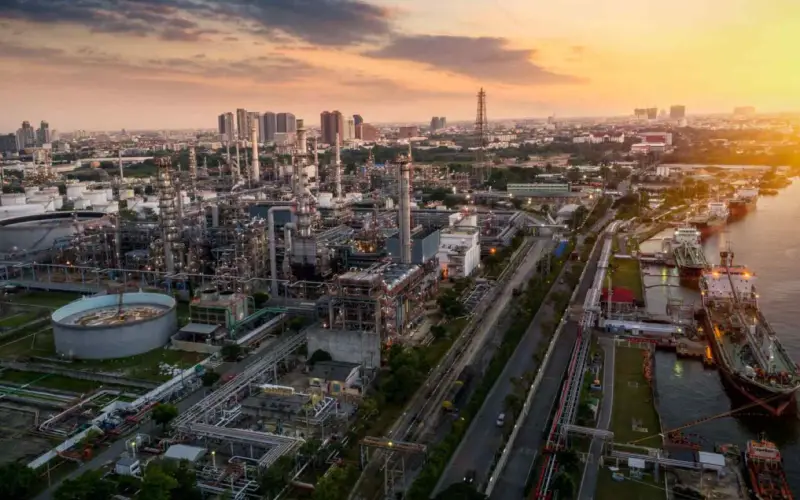- An estimated $5.7 trillion is required to close the infrastructure investment gap in South Africa by 2050.
- Of the energy sector projects, 25 are under construction under Bid Window 5 of REIPPP.
- Access to clean water and sanitation is a basic human right, yet many communities in South Africa lack reliable access to these essential services.
South Africa needs an estimated $5.7 trillion To bridge the shortfall in infrastructure investment by 2050. This deficit spans several sectors, including underdeveloped transportation systems, inadequate energy provisions, scarce access to potable water and sanitation services, and a shortage of affordable housing. These issues are particularly pronounced in rural locales and informal settlements.
This is according to statements made by Mameetse Masemola, Acting Head of Infrastructure South Africa (ISA), during the Sustainable Infrastructure Development Symposium South Africa (SIDSSA).
In a media briefing, Masemola gave an update on the initiatives led by ISA since its establishment in 2020. He also emphasized the efforts of the government agency to promote collaboration between the public and private sectors and to expedite the development of infrastructure.
The Century City Conference Center, SIDSSA, brought together key stakeholders in South Africa and across the continent with the aim of driving infrastructure development. SIDSSA 2024 is a crucial platform for discussions and partnerships in the infrastructure investment landscape, focusing on accelerating economic activity through strategic infrastructure plans.
“Our mandate is to close the infrastructure investment gap… We ensure projects are viable and bankable to attract funding from global investors. We work closely with authorizing departments to ensure fast rollout of projects, while ensuring the projects meet local regulations,” said Masemola.
ISA has led projects across ICT, energy, water and sanitation, transport and human settlement sectors, which have grown substantially in recent years.
“These are the sectors that support economic growth and enable South Africa to be competitive globally. Most of the projects were in their early stages in 2020. The value was $12.33 billion (R230 billion) and the value has grown to over $ 26.8 billion (R500 billion),” stated Masemola.
In the energy sector, 95 per cent of projects deployed have been private sector-led, including renewable energy projects developed under South Africa’s Renewable Independent Power Producer Program (REIPPP), Embedded Generation Program and Just Energy Transition Program.
Of the energy sector projects, 25 are under construction under Bid Window 5 of REIPPP, with five having reached financial close and 14,000 jobs expected to be created, added Masemola.
In the transport sector, 15 projects have been announced, of which six represent a total value of $1.34 billion (R25 billion) and are currently under development. Masemola stated that ISA has succeeded in the human settlement sector, with over 9,000 units constructed and 38,000 jobs created since 2020.
Commenting on ISA’s current and future project pipeline, Masemola stated that the agency has secured R600 million from South Africa’s treasury to invest in projects over the next three years, with 31 projects being prepared.
Read Also: Landmark $20.8m Sub-national Water Infrastructure Green Bond Issued in EA
The Bigger Picture of Infrastructure Investment in South Africa
Transportation infrastructure is a key issue in South Africa, with congested roads and outdated railways impacting the movement of goods and people. The country’s ports also face challenges in terms of efficiency and capacity, affecting its competitiveness in global trade.
Energy infrastructure is another critical area of concern. South Africa relies heavily on coal for electricity generation, leading to environmental challenges and concerns about energy security. The country’s transition to renewable energy sources has been slow, further exacerbating the infrastructure gap and hindering progress towards sustainable development goals.
Access to clean water and sanitation is a basic human right, yet many communities in South Africa lack reliable access to these essential services. This affects public health and contributes to social inequalities and economic disparities.
The infrastructure gap also impacts the housing sector, with a shortage of affordable housing options for low-income households. Informal settlements continue to grow as people migrate from rural areas to cities for better opportunities, putting pressure on already strained infrastructure and services.
Addressing the infrastructure gap in South Africa requires a multi-faceted approach. Investment in modernizing transportation networks, upgrading energy infrastructure, expanding access to clean water and sanitation, and promoting affordable housing solutions are essential steps.
Public-private partnerships, innovative financing mechanisms, and sustainable development practices can significantly bridge the infrastructure gap and foster inclusive growth and development across the country.
According to experts, the infrastructure gap in South Africa is a complex challenge that requires coordinated efforts from government, private sector stakeholders, and civil society to ensure sustainable and inclusive development for all its citizens.
Read Also: Energy, agriculture key focuses during the Africa Investment Forum Market Days 2024
